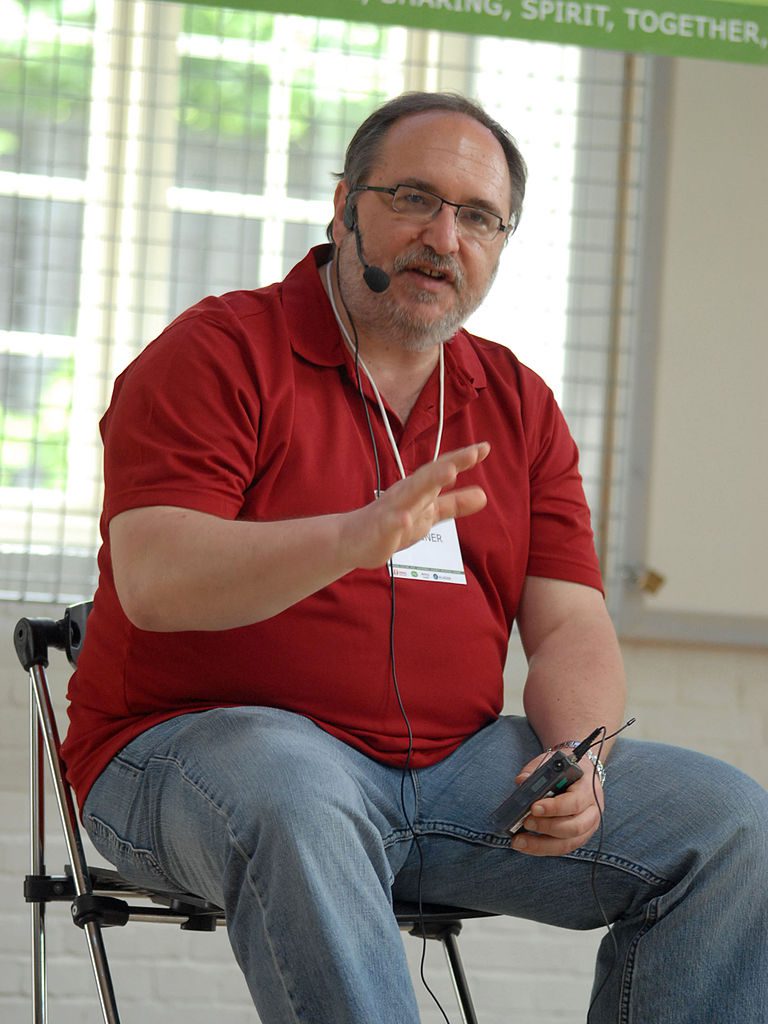Software developer Dave Winer founded two companies in the world’s high-tech hub, Silicon Valley. He is also known for inventing the weblog, RSS technology and podcast. Read more about the New York genius on queens-future.com.
Education and early career
Dave Winer was born on May 2, 1955 in Queens. At school, Dave was not interested in technology. He got acquainted with computers at university. In 1976, Winer received a bachelor’s degree in mathematics from Tulane University, Two years later, he got a master’s degree in computer science from the University of Wisconsin-Madison.
In 1979, Dave Winer began working as a lead software developer at VisiCorp (formerly Personal Software) in Silicon Valley. It was the first publisher of software for personal computers. The company worked on the software product VisiCalc, which was the first software for creating and editing spreadsheets. In parallel, Winer created his own product, VisiText.

Two years later, Winer left VisiCorp and founded his own company, Living Videotext. In 1983, this company released the ThinkTank structural editor. This application allowed creating tree-like lists and working with text in this form at the level of operating with hierarchy elements.
In 1987, Winer sold his company to software developer Symantec for an extremely large sum. For the next 6 months, he worked in the newly created division of Symantec, Living Videotext. In 1988, Winer founded UserLand Software.
Web Voice of Silicon Valley
Dave Winer also became famous as a successful writer, one of the most prolific content generators in the history of the Internet and the web voice of Silicon Valley. In the mid-1990s, the programmer became interested in online publishing. He helped automate the production process of the strikers’ online newspaper. In February 1997, he created Scripting News, one of the oldest blogs in the world. Winer became interested in news coverage in high school when he founded an underground newspaper.
He later co-developed the XML-RPC API with Microsoft. This interface led to the creation of SOAP, a protocol for exchanging structured messages in distributed computing systems. In the same year, Winer created a format for Scripting News, which made it possible to provide information to readers much more quickly.

In November 1994, Winer founded DaveNet, a kind of forum for discussions about the computer industry, music, etc. DaveNet distributed email newsletters. Interestingly, some of them contained complaints about Apple’s management.
By the late 1990s, Winer was being named a leader in blogging tools. In February 2002, InfoWorld magazine named the programmer one of the Top Ten Technology Innovators.
However, technological skills are not what make Winer one of the best bloggers in the world. He is a real thinker, writer and political activist with strong views. Dave believes in the need to engage in discussion with those who disagree with him. At the same time, such a self-confident man is not deprived of sensitivity. It hurts him when someone writes disparagingly about him but he has a philosophical attitude to insults.
Podcast creator
In the 2000s, Winer introduced RSS technology, which allowed users to subscribe to audio blogs and automatically download new episodes. RSS appeared from the merger of Dave Winer’s Really Simple Syndication technology and Netscape’s Rich Site Summary. The first allowed users to submit information about updates on blogs and the second helped users to create their own homepages, where data is regularly updated.
At that time, no one understood the new technology and did not use it. Later, Winer, together with experienced radio host Christopher Lydon, recorded an MP3 file in a self-made studio. It became the world’s first podcast. Although people gradually began to realize the essence of audio blogging, they did not hurry to join its creation. Dave simply voiced his thoughts on various topics in front of the microphone, sharing his impressions of the books he had read and the movies he had watched. The listeners gradually began to understand that they could easily do the same.
The term podcast arose in 2004 as a result of the fusion of the words iPod (music player) and broadcast. In June 2005, the term podcast was introduced to the public by entrepreneur Steve Jobs. Soon, Apple launched a new Podcasts section in iTunes. Then, the technology became available to the audience.
However, the real popularity of the audio program came after the launch of Serial. This investigative journalism podcast became the first show to reach 5 million unique downloads on iTunes. The authors of Serial borrowed tools and working principles from traditional media. Serial for the first time showed the world that podcasting is a full-fledged audio documentary format.